Supported webhook events:
- Code pushed
- Pull request created
- Pull request updated
- Pull request merge attempted
Prerequisite: Enable webhooks in the Git Integration for Jira app before proceeding. See Indexing triggers – Getting Started.
Configure Azure DevOps Server Webhooks
-
Log in to your Azure DevOps Server/TFS account and open a project.

-
Go to Project Settings ➜ Service Hooks (sidebar).
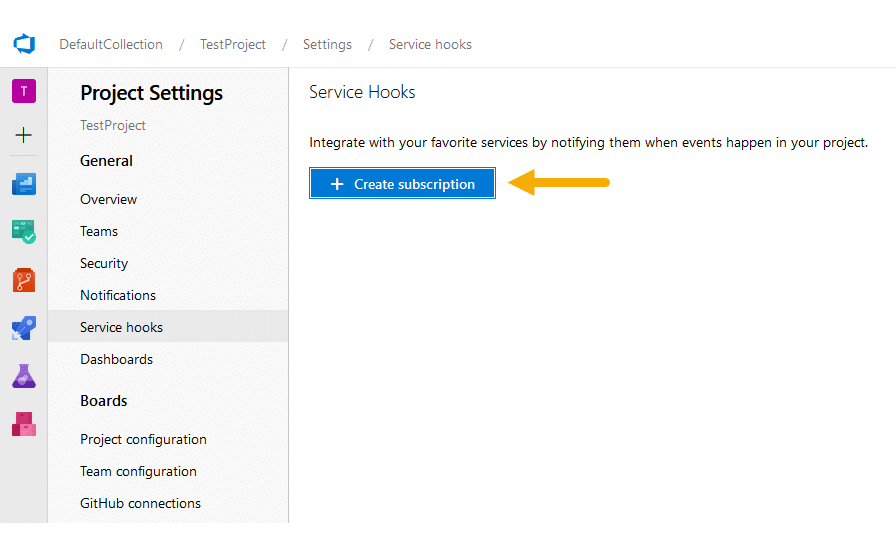
-
Click Create subscription.
-
Scroll down and select Web Hooks, then click Next.
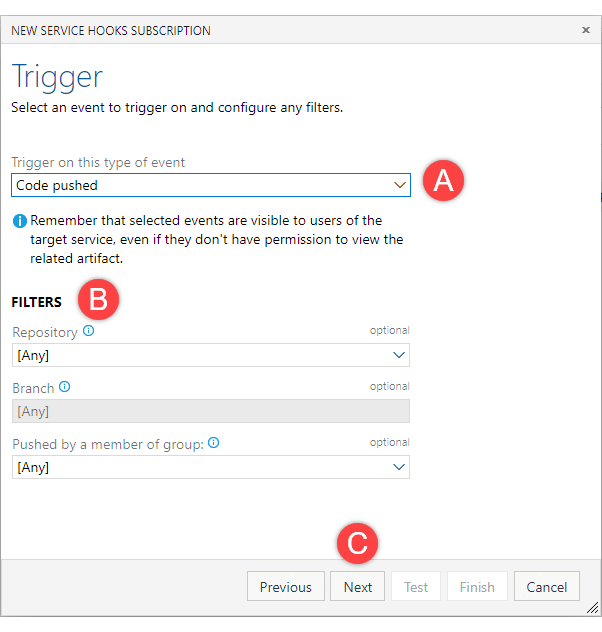
-
Configure the trigger:
a. Set Trigger on this type of event to Code pushed
b. Set all FILTERS to Any
c. Click Next

-
Get the webhook URL from Jira:
-
Go to Apps ➜ Git Integration: Manage integrations ➜ Indexing triggers
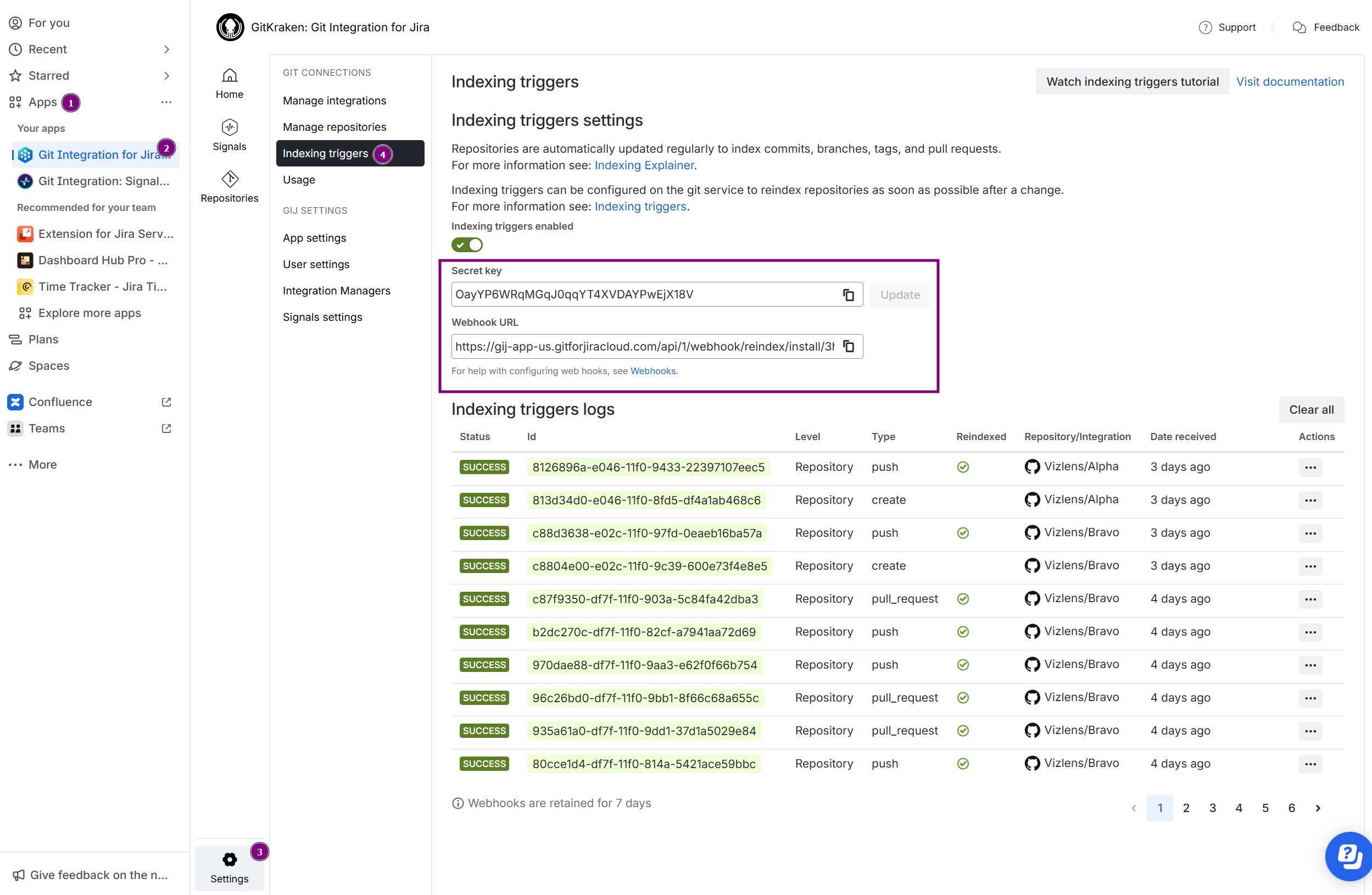
-
Click the copy icon to copy the complete webhook URL
-
-
Configure the action settings:
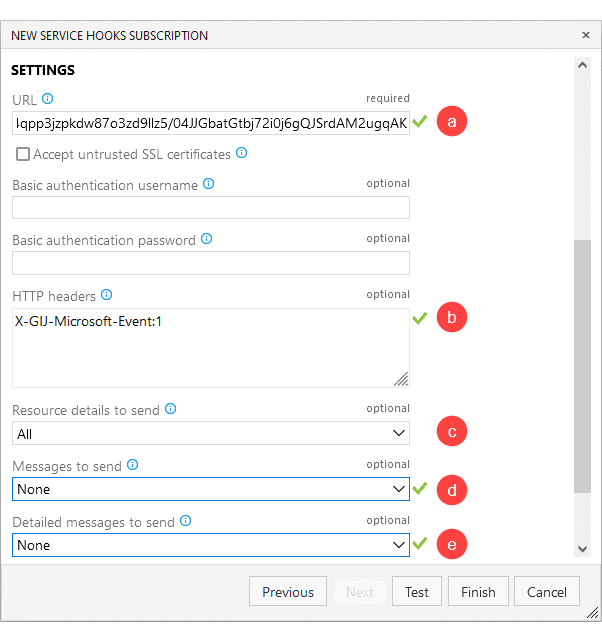
Setting Value URL Paste the webhook URL from step 6 HTTP header X-GIJ-Microsoft-Event:1Resource details to send All Messages to send None Detailed messages to send None Setting Messages and Detailed messages to None limits data transfer and prevents performance degradation from excessive webhook traffic. -
Click Test to verify the webhook configuration.
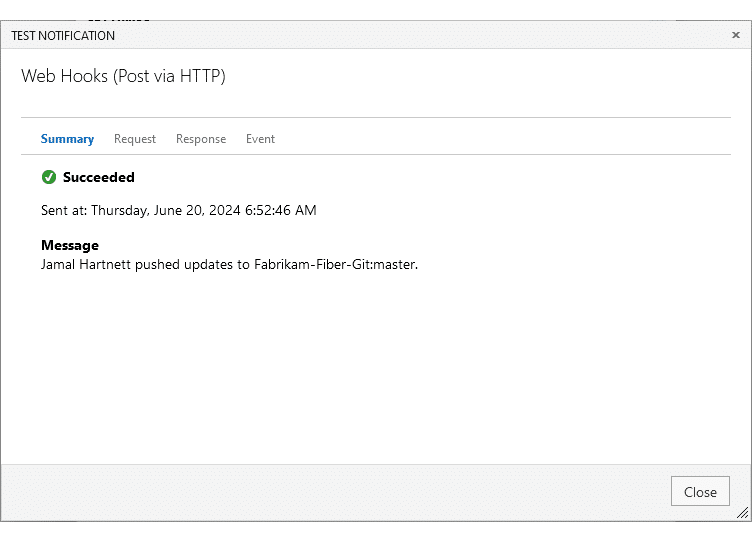
-
Click Finish.
Enable Pull Request Webhooks
Create separate service hooks for each pull request event:
- Code pushed (configured above)
- Pull request created
- Pull request updated
Repeat steps 3-9 for each event type, changing only the trigger event in step 5a.
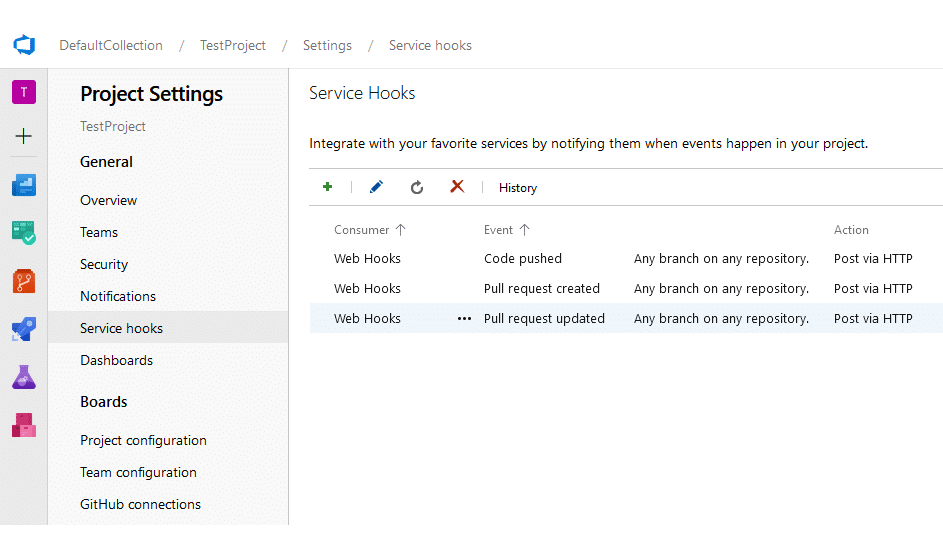
Last updated: December 2025
